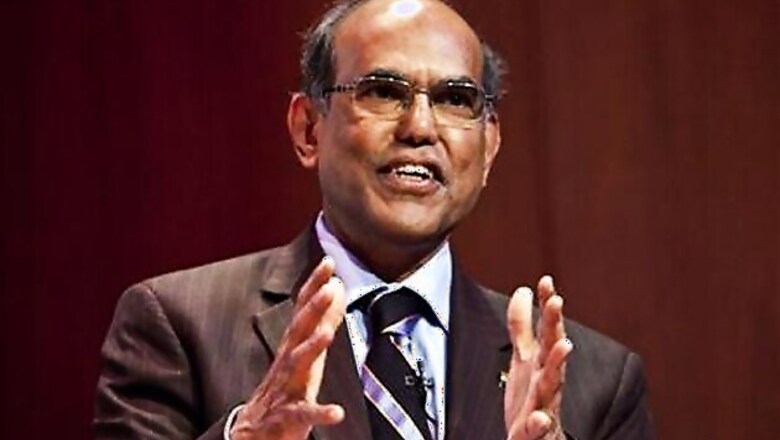
views
New Delhi: The RBI left interest rates unchanged on Tuesday but cut the cash reserve ratio for banks and indicated it may ease monetary policy further in the January-March quarter, although inflation remains a near-term concern.
While the decision to leave the policy repo rate unchanged at 8.00 per cent was in line with forecasts in a recent Reuters poll, expectations for a rate cut had grown after India's finance minister on Monday outlined a plan to trim the country's hefty fiscal deficit.
"As inflation eases further, there will be an opportunity for monetary policy to act in conjunction with fiscal and other measures to mitigate the growth risks and take the economy to a sustained higher growth trajectory," RBI Governor Duvvuri Subbarao wrote in his quarterly policy review.
Headline wholesale price index inflation rose to 7.8 per cent in September, and the RBI said it expects inflation to rise before easing in the final quarter of the fiscal year, which ends in March. "While risks to this trajectory remain, the baseline scenario suggests a reasonable likelihood of further policy easing in the fourth quarter of 2012-13," Subbarao wrote.
Investors, companies and the government have been clamouring for a cut to interest rates that have been on hold since April and remain some of the highest among major economies.
While economic growth in India has been slowing, inflation has not, and the central bank has been calling on the government to follow through quickly on recent steps to cut its deficit and encourage investment, and to take further such measures.
"Recent policy announcements by the government, which have positively impacted sentiment, need to be translated into effective action to convert sentiment into concrete investment decisions," Subbarao wrote.
The RBI cut its GDP growth forecast for Asia's third-largest economy to 5.8 per cent for the current fiscal year, from 6.5 per cent previously, and increased its projection for headline inflation in March to 7.5 per cent, from 7 per cent earlier.
The central bank lowered the cash reserve ratio, the amount of deposits that banks must keep with the central bank, by 25 basis points to 4.25 per cent, a move it said would inject about 175 billion rupees into the banking system in order to pre-empt potentially tightening liquidity. In the Reuters poll earlier this month, economists had been nearly evenly split on whether or not the RBI would lower CRR.


















Comments
0 comment